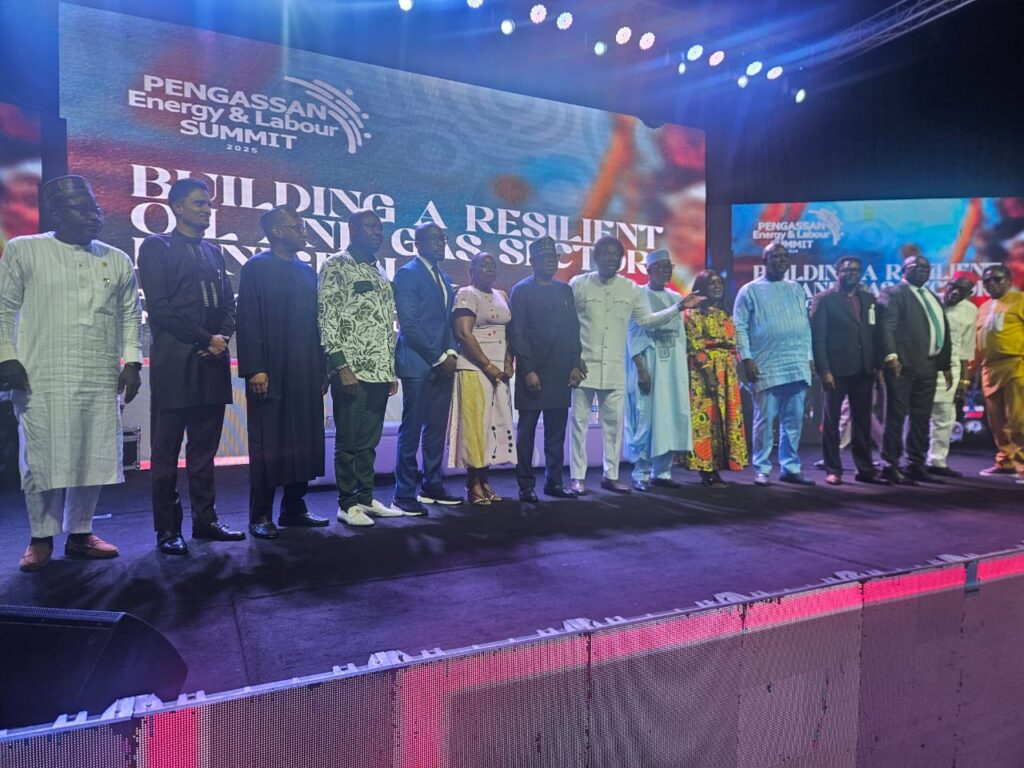By: Goodluck E. Adubazi, Abuja.
Nigeria’s oil and gas sector has been commended for exceeding its OPEC quota, with production rising to 1.8 million barrels per day.
The Minister of State for Petroleum Resources (Oil), Senator Heineken Lokpobiri, disclosed this on Wednesday in Abuja at the ongoing 4th edition of the PENGASSAN Energy and Labour Summit, held at the Transcorp Hilton. He credited the presidential mandate for the increase and expressed confidence that incremental production would push output towards the two million bpd target before the end of 2025. He emphasized that PENGASSAN’s collaboration is crucial to sustaining these gains and building a resilient oil and gas sector in line with this year’s theme: “Building a Resilient Oil and Gas Sector in Nigeria — Advancing HSE, ESG, Investment, and Incremental Production.”
Speaking at the summit, NNPC Group CEO, Engr. Bayo Bashir Ojulari, outlined the pillars for resilience: operational excellence, fiscal discipline, regulatory compliance, innovation, and people-centric leadership.
He stressed that Health, Safety, and Environment (HSE) is non-negotiable and must serve as the foundation of operations, to achieve zero harm and stronger incident reporting. Environmental, Social, and Governance (ESG) metrics were also highlighted as critical to attracting investment and building long-term value.
The summit spotlighted ESG as central to capital access and community support. NNPC Limited unveiled its energy transition roadmap, which includes cutting carbon emissions, expanding gas utilization, and boosting transparency. Social investments in health, education, and youth empowerment were emphasized, with calls for PENGASSAN to align its advocacy with ESG principles.
Labour voices also resonated at the summit, insisting that the energy sector must prioritize people in the transition to cleaner power.
The Minister of Labour and Employment, Alhaji Dingyadi Muhammadu, reaffirmed Nigeria’s commitment to tripartite dialogue and decent work in the oil and gas transition. He highlighted the role of gas as the backbone of the economy, supporting thousands of skilled jobs and generating export earnings. He called for stronger health, safety, and environmental standards, fair wages, and continuous upskilling to secure a resilient, workforce-driven energy future.
Meanwhile, Minister Lokpobiri stressed the importance of Nigeria’s resilience roadmap, noting that the new NNPC business model targets value creation, efficiency, and greater gas development.
Nigeria’s state oil company described reforms such as joint venture monetization, asset restructuring, and upgrading critical infrastructure—including pipelines and gas monetization projects—as measures designed to attract investment and safeguard energy supply.
In his keynote address, ExxonMobil’s Hazizi Hassan framed energy security within the context of Nigeria’s rapidly growing population, projecting the country to become one of the world’s largest by 2050. He argued that oil and gas must play a central role in lifting millions into the middle class, enabling rapid electrification and broader industrial growth, while linking resilience to incremental production gains.
In closing remarks, officials called for deeper collaboration among government, labor unions, industry players, and civil society. The goal, they noted, is to achieve a safer, more sustainable, and inclusive oil and gas sector that drives economic growth while protecting workers and communities, backed by ongoing regulatory support and labor reforms.

